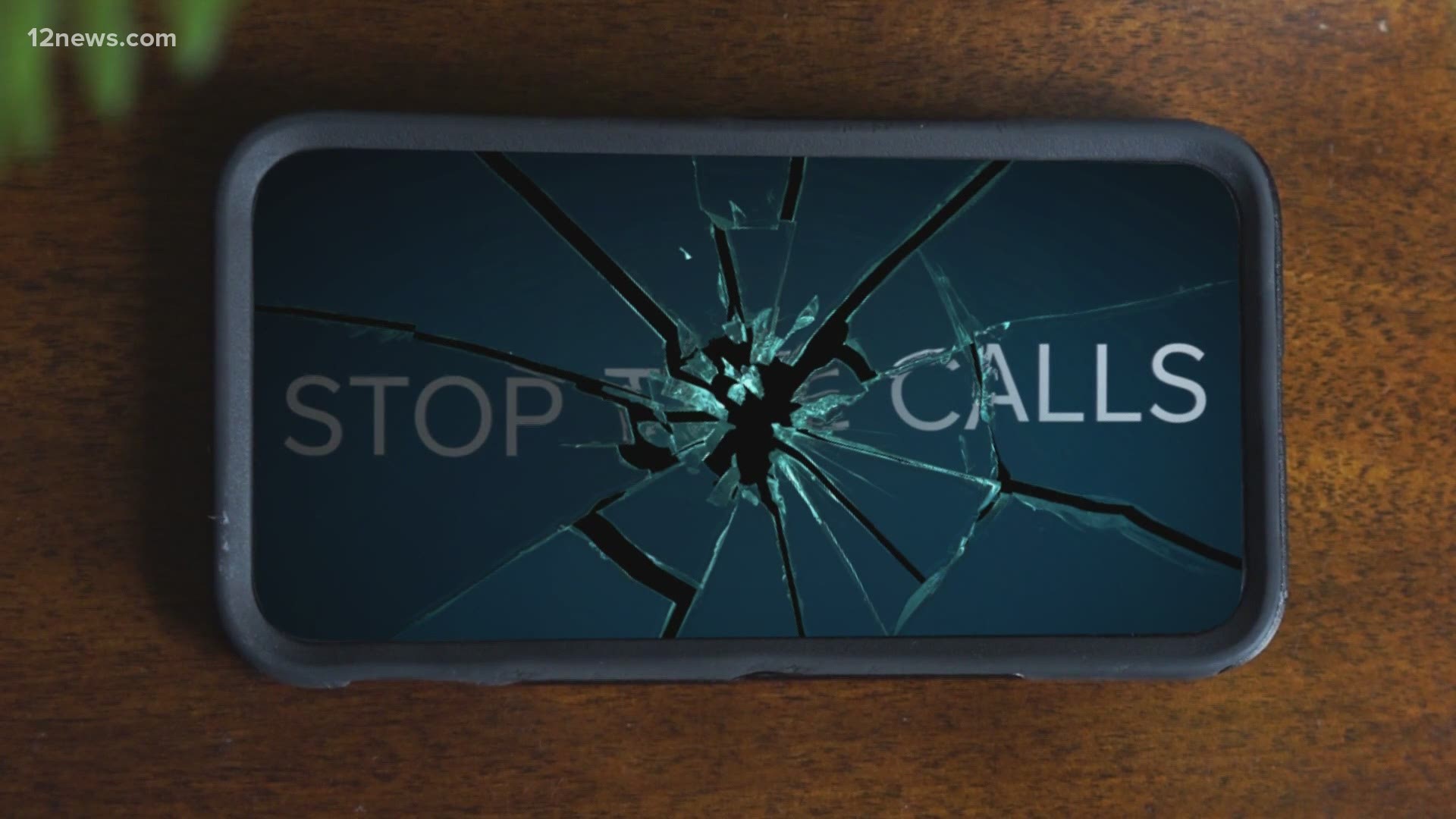ARIZONA, USA — Susan Steyaert did not need a vacuum.
She didn’t even want one.
But the man on the other end of the phone was persistent, keeping her on the phone and trying to get her to agree to an in-home appointment,
“[my number] was on the Do Not Call list,” Steyaert said. “I told him I was on the Do Not Call list. He really didn't care.”
The call was from a vacuum cleaner company called Bright & Shiny, based in Sun City.
“Nothing that I said worked,” Steyaert said. “I really couldn't get him to give up.”
Finally, she gave up and agreed to a sales appointment. The salesman spent hours in her house, she said, not leaving until he made the sale.
Steyaert said she finally bought the vacuum, just to get him out of her house.
She said she spent $1,800 for a vacuum she didn’t want. All because of a robocall she should never have gotten.
Going After Robocallers
Arizona Attorney General Mark Brnovich filed a lawsuit against Bright & Shiny, claiming the company had contacted hundreds of people whose numbers appeared on the Do Not Call list.
The company settled and agreed to pay $600,000. It appears to no longer be in business.
“I actually file complaints with our office,” Brnovich said.
In the last year, robocalls have skyrocketed nationwide. There have been more than 58 billion calls in a year -- 43% of those are considered scams.
Robocallers use Voice Over Internet Protocol (VOIP) to hide their numbers, making it very hard to find out who’s actually behind the calls.
It also lets them make hundreds or even thousands of calls every second.
“The scammers use technology,” Brnovich said. “Now we as the government need to make sure we're doing everything we can to use technology (to) help us solve this problem.”
Brnovich has gone after multiple companies in Arizona that have violated the Do Not Call List, including Bright & Shiny. But his authority generally stops at the Arizona border.
“I don't have jurisdiction to go to Moldova and arrest that guy and prosecute him,” Brnovich said.
Prosecuting
It’s hard for any law enforcement agency to go after robocallers who break the law, especially if they’re outside the country.
What federal authorities have started doing, is going after the people that sell them the phone system.
Nick Palumbo ran a company that sold phone services to robocallers. He said he collected a fraction of a cent per call, for thousands and thousands of calls. That added up to a lot of money.
“I think that they are trying to stop these fraud calls, but quite frankly they don't know how to stop it,” Palumbo said during a recent phone interview.
Prosecutors sued Palumbo, claiming scammers were using Palumbo’s business to get access to the phone system, and then scamming customers.
They alleged he did not do enough to stop them, something Palumbo denies.
The case was settled and Palumbo agreed to get out of the phone service business.
“They need to go after the call centers that are doing the scams that are telling people to go get gift cards and whatever. That's how you spot the scam,” Palumbo said. “Is your phone still ringing? I know mine is."
The Calls Continue
Steyaert’s phone is still ringing, too, even after being a plaintiff in a court case that cost a robocaller more than a half-million dollars.
“I got two this morning,” Steyaert said.
She said she got a small fraction of her money back, but not close to what the vacuum cost.
And while Bright & Shiny may not be calling her anymore, the robocalls keep coming.
I-Team
Learn more about other 12 News investigations by subscribing to the 12 News YouTube channel and watching our I-Team playlist.

